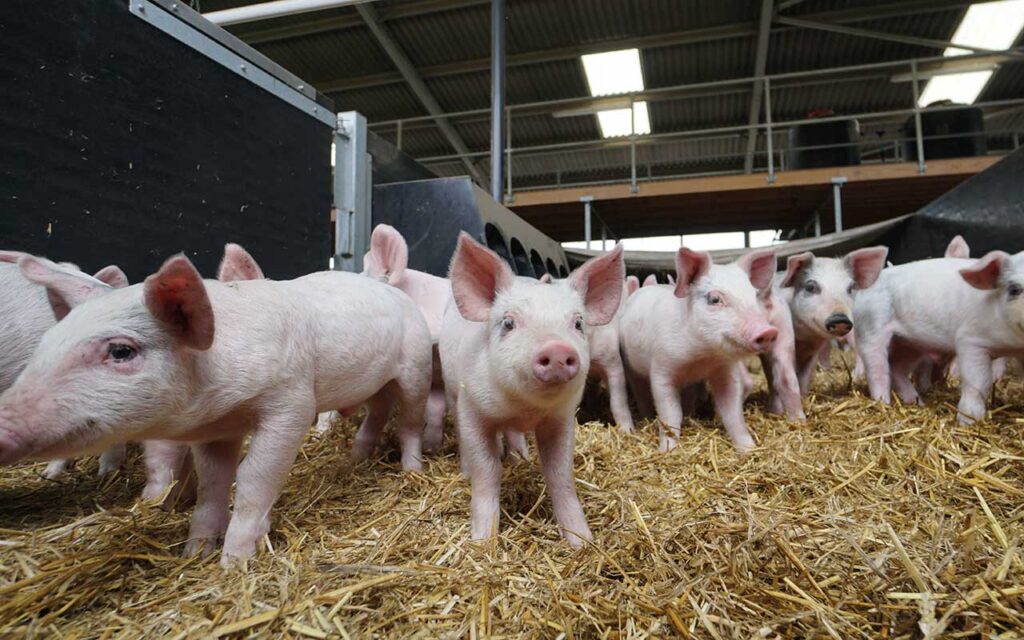Pilgrim’s Europe is ‘putting its money where its mouth is’ and investing in the long-term future of British pig production.
The company, which acquired Tulip’s struggling UK pork business, including BQP and various processing and manufacturing sites, in 2019 has finally begun to turn it around.
Pilgrim’s UK, its pig arm, returned a profit of nearly £40m in the last financial year, following years of heavy financial losses under the current ownership and Tulip, before that.
It is now looking to use its sounder financial footing to help secure and grow its pig production base, a recognition of both its long-term ambition as a producer of British pork, and the challenges posed by a diminishing number of producers operating in the sector.
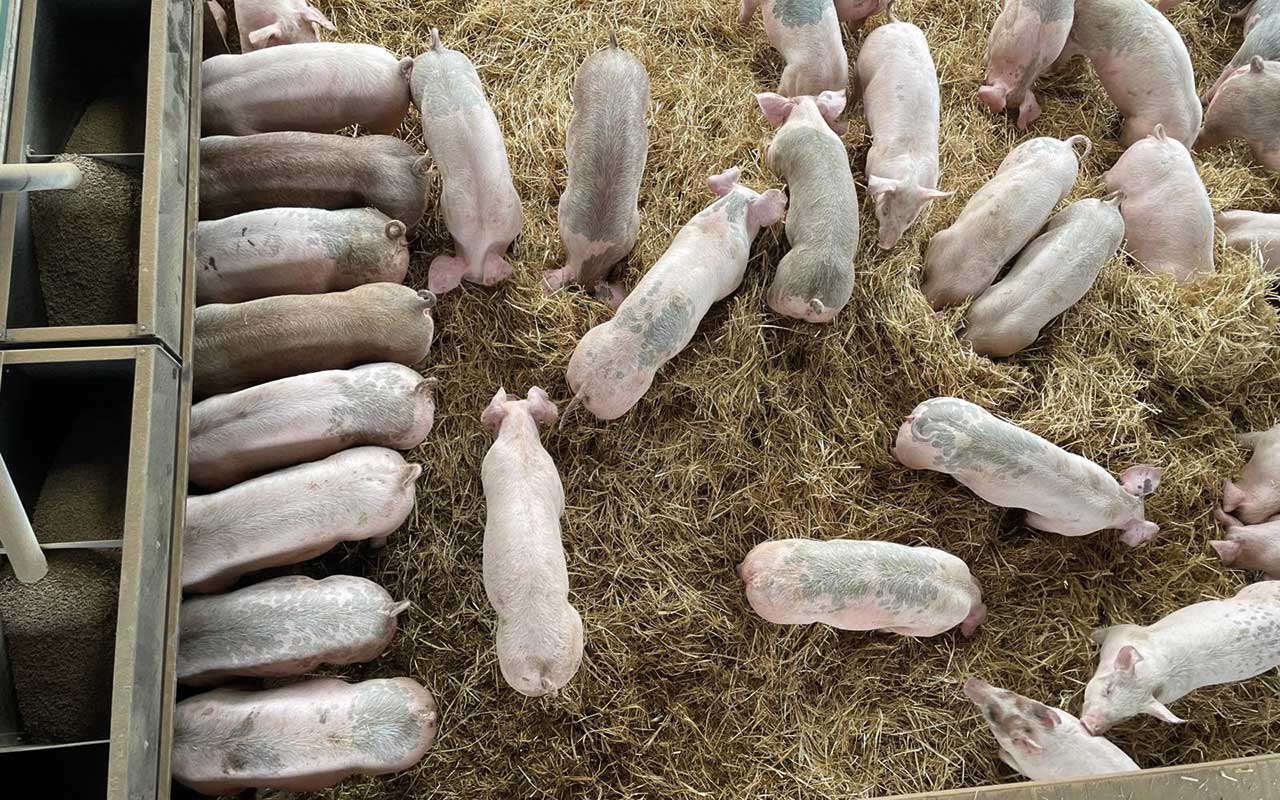
It is offering a new longer-term, more financially stable package to farmers from all sectors of UK agriculture, mainly for new builds, but also conversions, with a focus on quality that reflects the growing demands from retail customers for higher environmental and welfare standards.
“Pilgrim’s Europe is growing,” said Eduard Miotto, Pilgrim’s Europe’s head of agriculture since March.
“Our plan is for continuous improvement, and to support the UK pig market. But the UK’s pig breeding herd has more than halved since the late-1990s and we lost more pigs after the 2022 crisis. Our market is becoming small, and it is quite difficult to find new farmers. So, we have decided to change things.”
Pilgrim’s Europe
- Owned by US Nasdaq-listed Pilgrim’s Pride Corporation (PPC), part of Brazilian food giant JBS
- Comprises Pilgrim’s UK, manufacturer Pilgrim’s Food Masters and poultry producer Moy Park
- £4.2bn UK turnover (FY23)
- 20,000 staff members in the UK and Europe
- 40+ sites across the UK and Europe.
Pilgrim’s UK/BQP
- A producer of primarily high-welfare pork and lamb
- It has 10 processing and manufacturing sites in England, one in Wales
- Pigs are slaughtered at abattoirs in Spalding, Lincolnshire, which mainly supplies retailers, and Westerleigh, in Bristol, which also exports to China, the US and Europe
- The abattoirs have maintained overall production levels, following the closure of its Ashton plant last year
- It supplies the majority of UK retailers with a range of pork products
- Two-thirds of its retail market is outdoor-bred pork, one-third is Red Tractor
- BQP was founded in 1979 and has pioneered high-welfare outdoor production
- It currently has two nucleus herds of 55,000 sows in 58 breeding herds
- It also has more than 300,000 rearing pigs on more than 160 partner farms
- A team of up to nine highly trained field staff support the farm partners.
Pilgrim’s Europe
Pilgrim’s Europe comprises Pilgrim’s UK; Pilgrim’s Food Masters, a manufacturing business specialising in ready meals; and Moy Park, the Northern Ireland-based poultry producer.
It is owned by US Nasdaq-listed Pilgrim’s Pride Corporation, part of the Brazilian-owned global food giant JBS, which employs more than 270,000 people worldwide across 400 sites in 19 countries. Pilgrim’s Europe represents 30% of Pilgrim’s Pride and 9% of the global JBS business.
BQP (British Quality Pigs), meanwhile,
has been a quintessentially British part of the agricultural landscape since 1979, a pioneer in the development of outdoor-bred, high-welfare pig production over more than four decades, including the mainly straw-based bed and breakfast rearing and finishing system.
It was, for a long time, the UK’s biggest pig producer, with more than 60,000 sows, a position now held by its main rival, Cranswick. Today, BQP still has 55,000 sows on 58 predominantly outdoor breeding sites, with more than 300,000 growing pigs on around 160 ‘partner farms’. With its Suffolk roots, many of its producers are located in East Anglia, but it has sites in other key pig-producing areas.
Pilgrim’s also takes pigs from contracted farms across the country, which supply most of its Red Tractor needs.
It is a case of global meets local, which, in this case, appears to be working well for both sides. In a sign of its influence, Pilgrim’s Europe increasingly wants its name to be used in reference to all parts of its business, including pig production – although Mr Miotto stressed that the iconic BQP name will still be used alongside it.
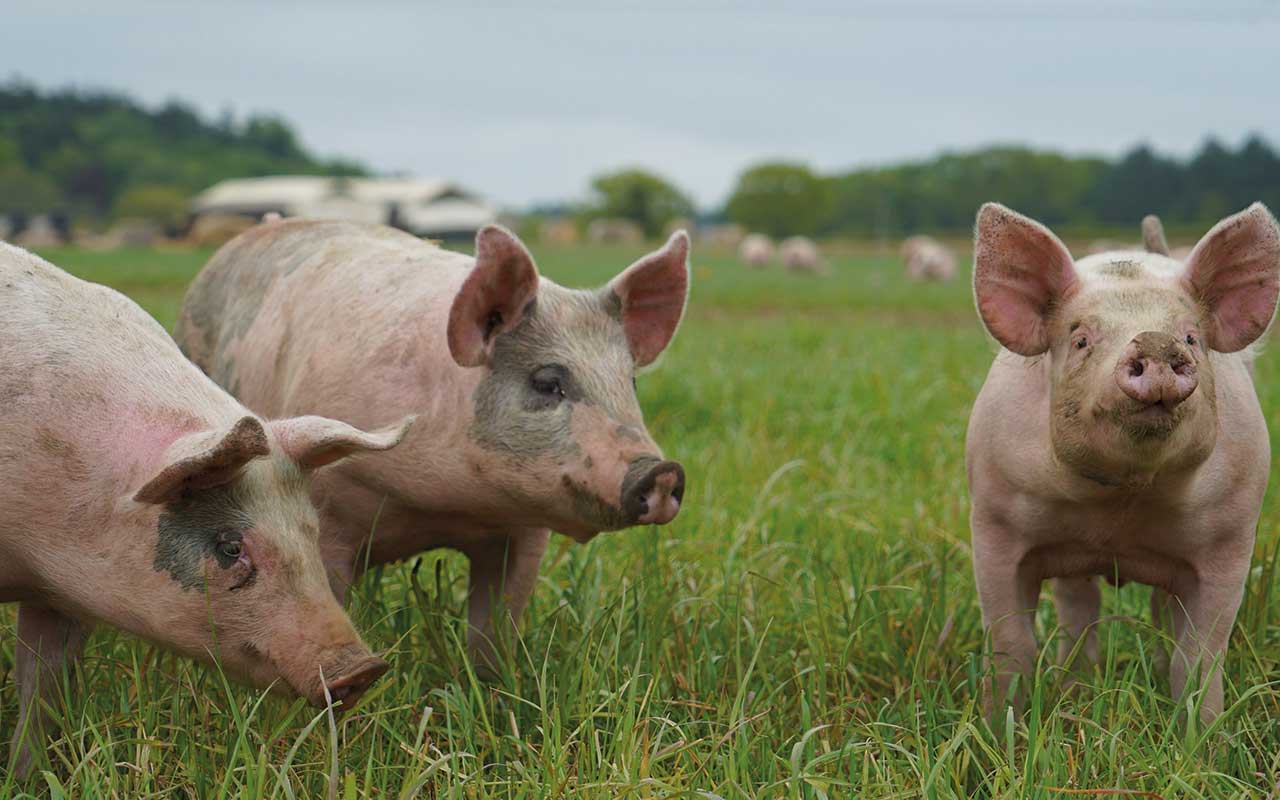
The new offer
According to Mr Miotto, who previously worked in pigs for Brazilian food company BRF for 13 years, the company values British pig production highly because of its production standards. It is taking a longer-term approach to try to secure it, recognising that all parts of the chain need to make a consistent profit for it to operate effectively.
Mark Jagger, the company’s long-serving assistant grower farms manager, and Heidi Dekker-Woljung, head of agri-business development, have recently begun discussing the company’s new offer with farmers. It primarily focuses on rearing pigs, but the company is also open to investing in new breeding farms.
For contract-rearing pigs, the fundamentals are unchanged. Pilgrim’s will supply the pigs, feed, transport, veterinary support and medicines, dead pig disposal and, crucially, field staff support. The farmers provide the building, labour, machinery, straw and water, and cover other on-farm costs.
The big change is the length of the new contracts – 20 years – while Pilgrim’s is also promising to structure payments to ensue farmers always make a positive margin.
For new builds, typically this will involve the construction of a shed with 1,000 pig places, which at current prices could cost £350,000-£400,000.
Farmers will be asked to take out a mortgage for 20 years, but Pilgrim’s will cover it, with a payment currently set at up to £15 per batch per year over 20 years, reflecting today’s interest rates. Every five years that payment will be renegotiated, mainly in relation to the interest rate to ensure the positive margin is maintained.
On top of that is a monthly payment of, for example, just over £3/pig place that is dependent on the farmer complying with various standards, including a maximum mortality level. Contractors can top up their payment with bonuses, for example, by meeting feed conversion ratio (FCR) targets, minimising feed stocks at the end of each batch, or if they vaccinate and split sex piglets themselves.
Pilgrim’s Europe will also help farmers with the planning application process and, when the pigs arrive, biosecurity measures.
Mr Jagger stressed that one of the key benefits, particularly for anyone new to pigs, is the role played by BQP’s dedicated field staff. “It’s a very steep learning curve if you introduce 1,000 pigs to your farm, but the BQP vets and staff are on call 24-7 and you can always get someone to support you, even if it’s via a video call,” he said.
“Our field staff get lots of training and they are assessed on how their farms perform. If the farms don’t perform well, they are held to account, not the farmer.”
He stressed that the package also extends to conversions, which complement the new-build work. “We will support farmers in a similar way with these projects,” he said. “We hugely value our current partners and will continue to grow with them. But this is an opportunity for farmers from any sector – and that includes pigs, for example breeders wishing to step back a little – to earn a guaranteed income over a long period in a true partnership.”
The new offer – key points
The company has improved its offer to farmers from all sectors. It includes:
- 20-year contracts for new builds
- A yearly payment, currently set at up to £15/batch over 20 years
- A commitment that farmers will make a profit throughout the contract
- A monthly payment of just over £3/pig place, with bonuses for meeting key targets.
Shed design
Another key driver for the revised offer, in an industry that has suffered from underinvestment over the years, is ensuring pigs are reared in modern buildings that maximise efficiency and deliver on welfare and environmental requirements. “This is about a quality building and putting our own stockmanship in it,” Mr Jagger said.
The latest designs have a smaller pen size, with around 60-70 pigs per pen, and are easy to clean, with gates and corridors big enough to get round with a teleporter, reflecting staffing pressures on many farms.
“We are stocking at about 1m/pig, and they have potentially more feeder and water space per pig. They have environmental control, automatic curtains, automated bin weighers and, of course, there is a big focus on water quality, something we have been working very hard on in recent years.”
Mr Miotto said efficient buildings like these can deliver significantly improved feed efficiency. “We are aiming for an FCR of 2.3, compared with 2.6 in straw yards. That is 30kg of feed saved for 1,000 pigs, which is 30t. That can have a big environmental impact over time and save a lot of money,” he said.
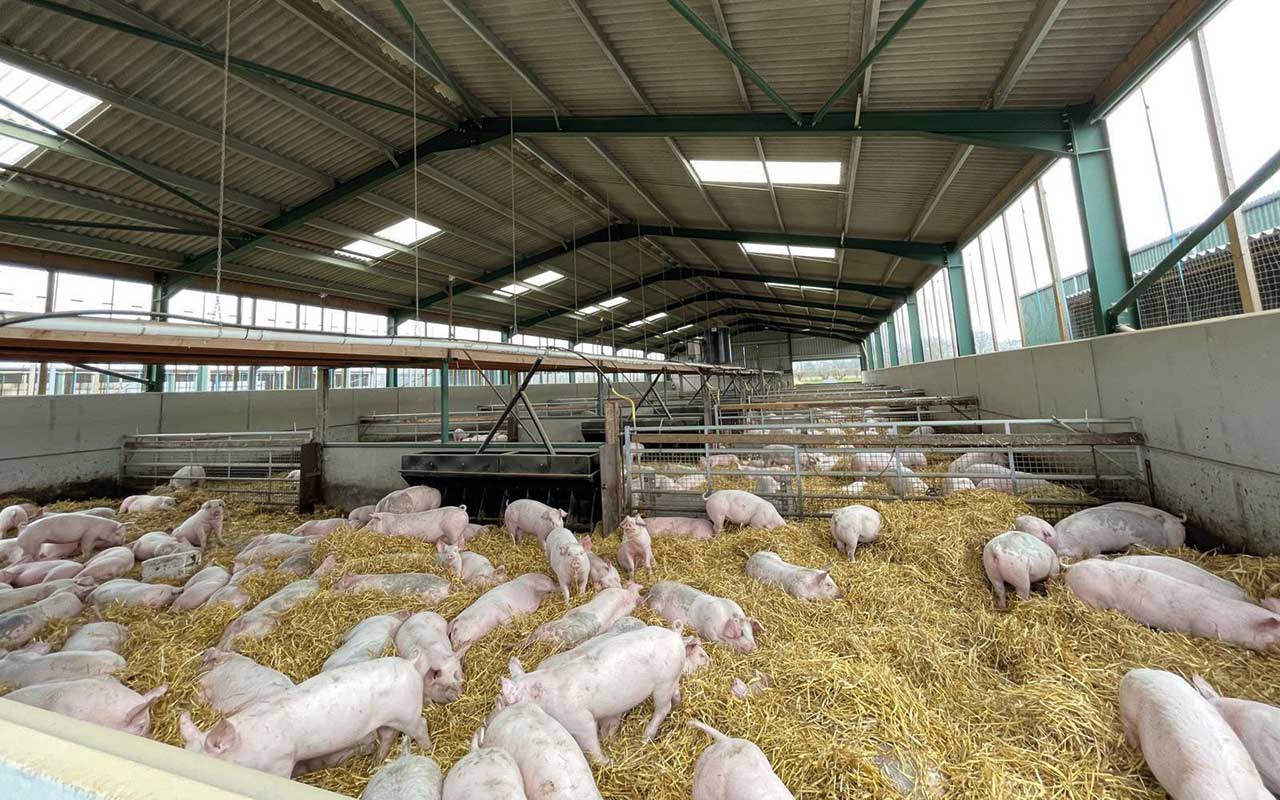
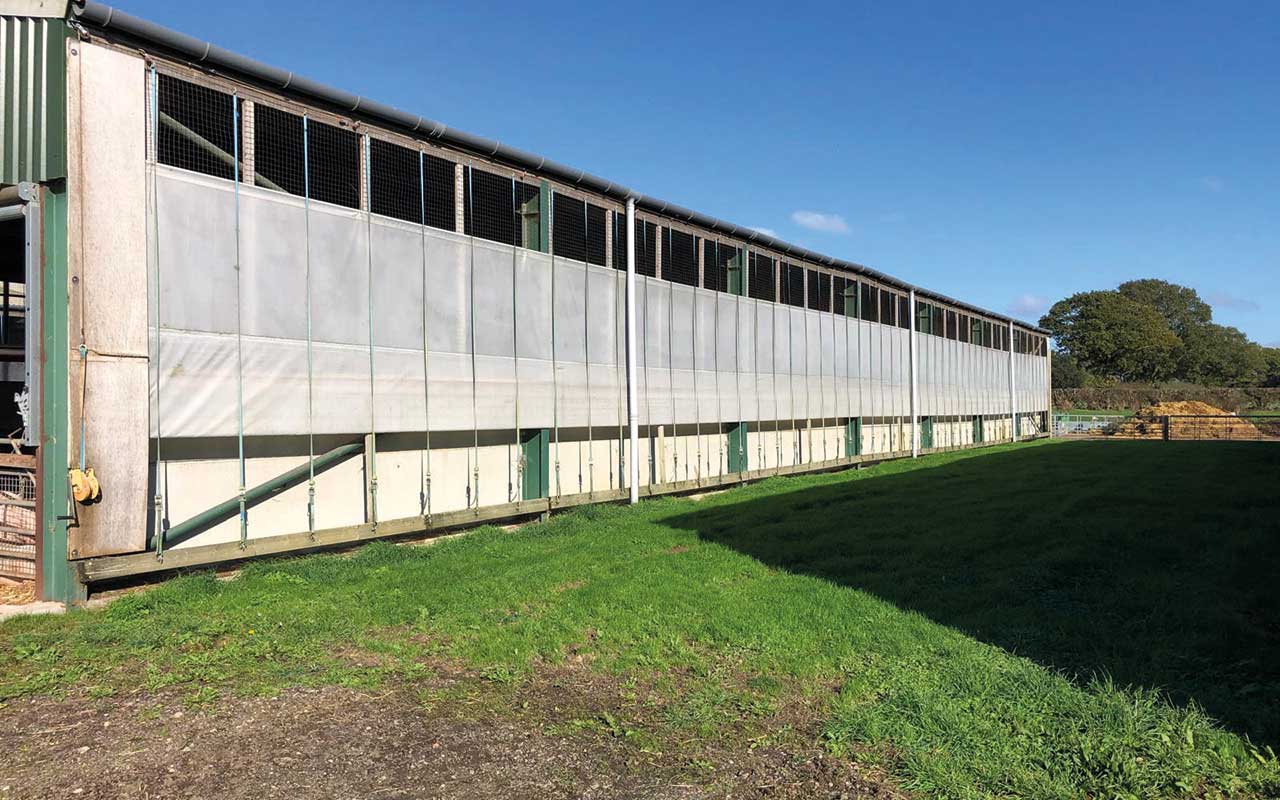
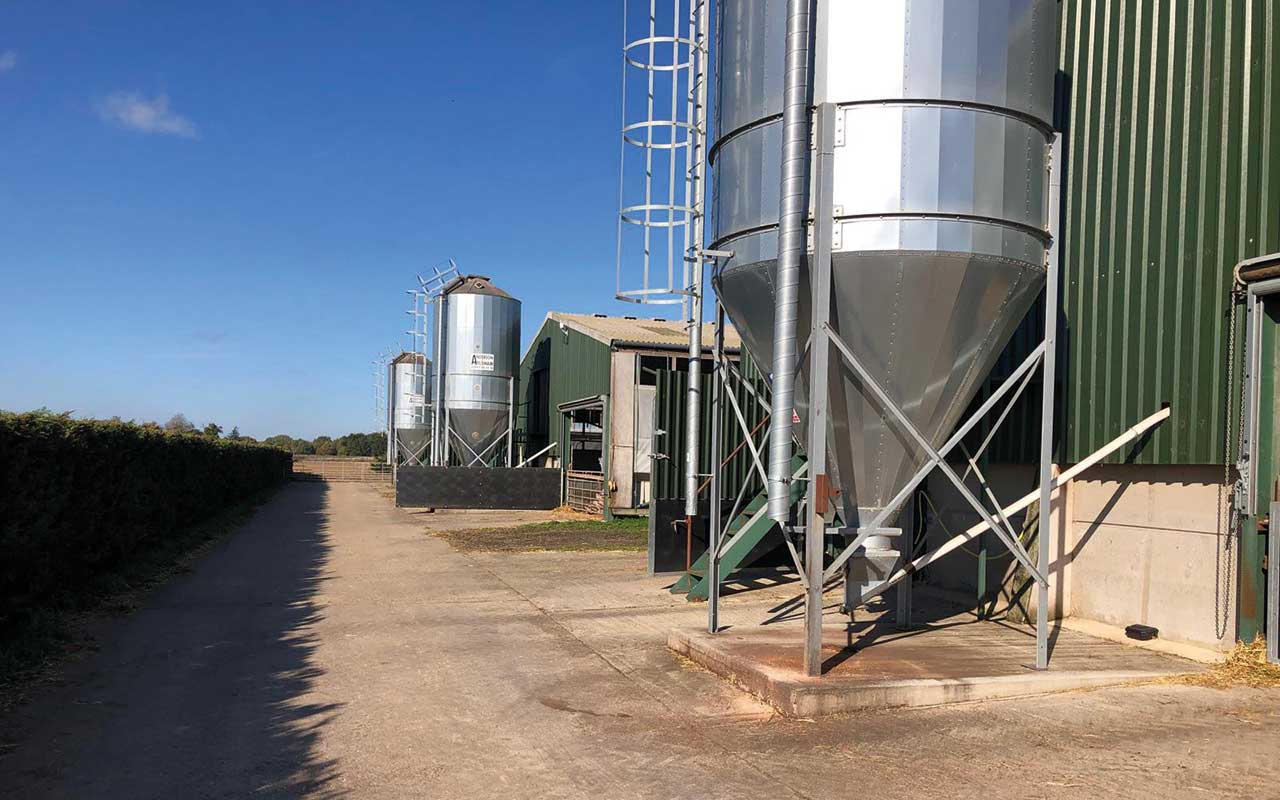
Various models
Ms Dekker-Woljung said, despite the rearing focus, the approach can be tailored to any pig business, including breeding pigs.
“One model isn’t going to fit everyone. Our message is: Don’t be afraid to approach us if you are not sure it’s for you because, ultimately, we have many different offers across the spectrum. We will hopefully be able to find a way to make it work.
“We recognise that the pig industry has been struggling for the past few years. We want to put our money where our mouth is to protect not only us, but the future of their businesses, too. So, let’s work together and see what we can achieve.”
Mr Miotto highlighted various reasons why it is becoming harder to find suitable sites to produce the pigs the company needs, including the retirement of farmers, concerns over regulations and the costs associated with buildings.
He said his ultimate long-term plan was to double the company’s finishing places to 600,000, but acknowledged that a more realistic goal was around 150,000 places, built up over a few years. Mr Jagger stressed that, with current planning constraints, upping capacity will not be a quick process.
Rethink
It is no secret that there can be a lot of competition among the large integrated pig companies and even the bigger independent breeders for quality rearing sites.
This has, in the past, led to short-termism, as producers are lured from one to another with the promise of better deals.
Ms Dekker-Woljung said: “We will continue to be competitive, but there is no point fighting each other for it. We will pick our battles, but our approach is to expand through investment in new accommodation, rather than stealing farmers from each other.”
She said the pig crisis of 2021 and 2022 had sent shockwaves through the supply chain and forced a fundamental rethink of how it operates. The Pilgrim’s executives stressed that the company tried hard to look after its producers and give them a fair return, but the vulnerability of the supply of UK pigs became painfully clear to all.
“Supermarkets want a fair price for farmers – they understand that it can’t be done for nothing. We as a business have been through a whole education piece with them, talking through prices and the challenges farmers face.
“It’s about working as one, from retailer to producer, so that everybody wins and everyone achieves the same goal, because, ultimately, none of us is going to be there without the others. Pilgrim’s needs to secure its supply and we can’t do it without farmers. We need to not just protect what we’ve got, but we need to rebuild what we’ve lost, as well.”
Mr Miotto added: “We really want to be seen as supportive and have long-term relationships with our farmers. We don’t want to be jumping around – we want to make sure we have good people who trust us, and we can build on that together.”
Independent farmers
The Pilgrim’s push comes at a time when Cranswick’s move into pig production continues to accelerate and a new player, C&K Meats, enters the fray through its partnership with Peddars Pigs.
The flip side to the rise of corporate production and the investment and long-term assurance that brings is the inevitable question over the future viability of independent producers.
Ms Dekker-Woljung insisted independent producers remain important to the company. “It is noticeable that more producers are moving to the integrated sector as they can’t survive on their own.
“But we try to create an integrated model, effectively, where they are still independent – we can’t support them as well as if they are integrated, but we do what we can to support them in terms of contracts and with investment. We try to treat them as friends and family,” she said.
Restructure
Pilgrim’s Europe has been undergoing a significant restructuring over the past few years, intended to deliver greater collaboration, efficiency and growth across the businesses. This includes a ‘footprint optimisation’ that has resulted in a number of smaller factory closures and staff redundancies.
But, while there has been pain along the way, it now finally appears to be in a position where it can look forward with more confidence and, rather than constantly firefighting, target growth.
Asked what has changed, Ms Dekker-Woljung said: “We’ve got a clear structure in place and a clear strategy. Everyone knows what target they should be meeting and if they are not being met, we look at the root cause of that and make changes. Everyone is aligned with that from top to bottom, and it has enabled us to be more efficient.”
Mr Jagger, who has been through all iterations of the business over the past 30 years, said silos had, metaphorically, been ‘knocked down’. “It’s now much more joined up between the breeding and rearing teams,” he said.
He also welcomed a more joined-up approach to meeting targets. Pilgrim’s Europe will, for example, be prepared to invest in new feed hoppers on a contractor’s unit if the case can be made that it is necessary to meet an FCR target. Previously, the onus would have been put back on the farmer.
“I’ve never had a business do that in 30 years of working in British agriculture. It’s a totally different way of looking at things,” he said.
British commitment
The company’s desire to process more British pigmeat to satisfy demand is clear, even if that means, at some point, expanding processing capacity. The challenge now is to find the producer partners to deliver that.
Mr Miotto said: “Pilgrim’s Europe wants to grow the European market. Our customer trends point to higher welfare and sustainably environmental production.
“The UK is the highest welfare standard that we have in the whole company [JBS], so it is putting a lot of money in as the scenario here is completely different. We will keep growing here.”
Mr Jagger added: “What Pilgrim’s want to do over the next 20 years is very much a sustainable expansion that has legs. Those buildings will last 20 years and, with a bit of maintenance, should continue for another 20 years, turning a profit all the time.
“We want to expand steadily and well, so that no one gets their fingers burned in the process, which, as we all know, has happened in the past.”




